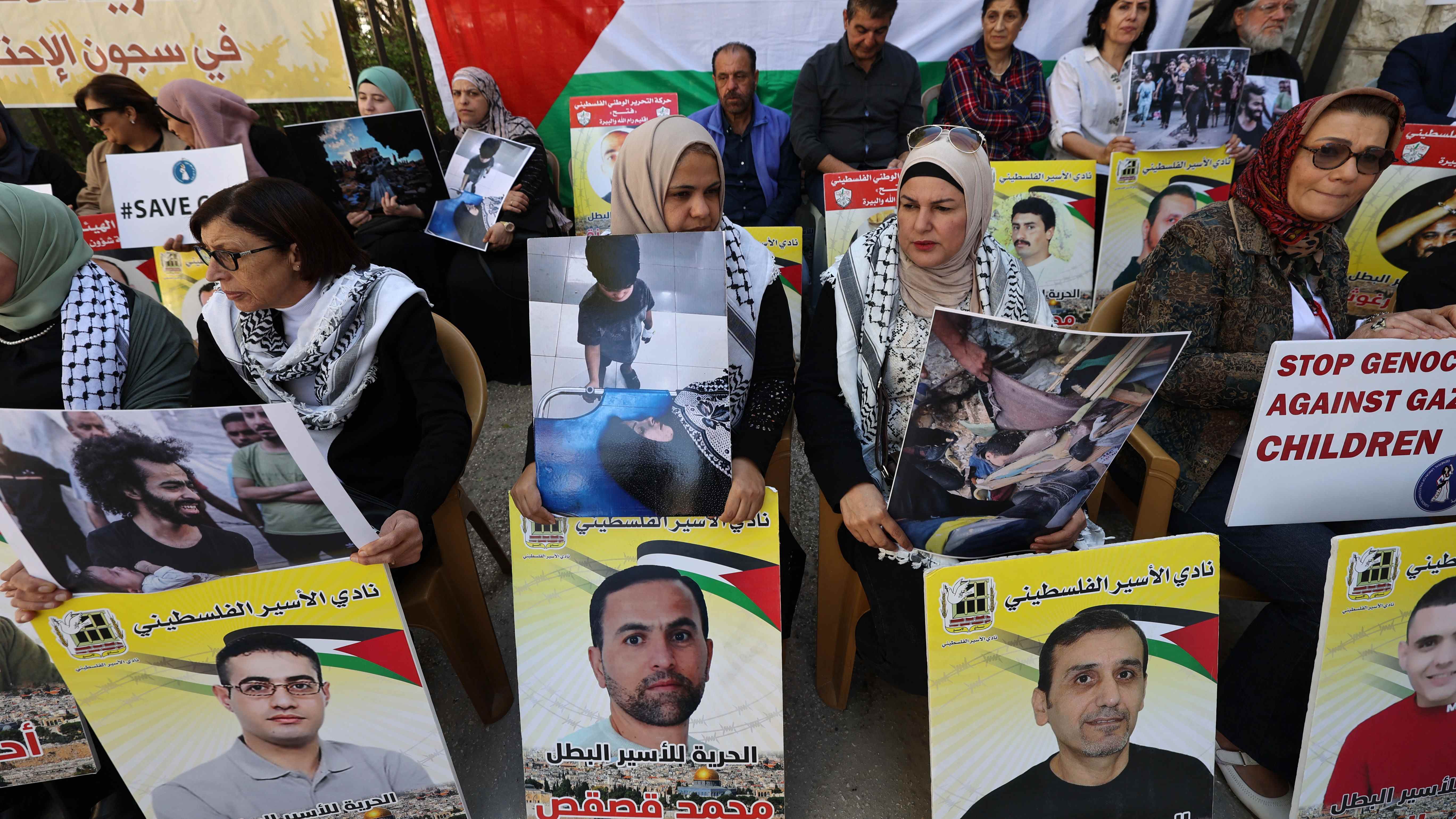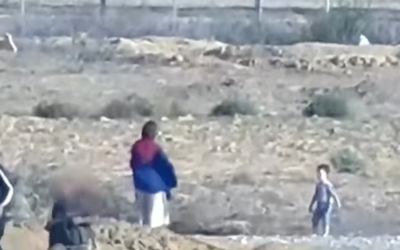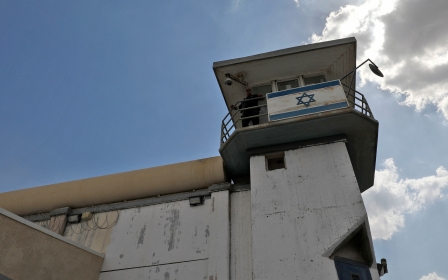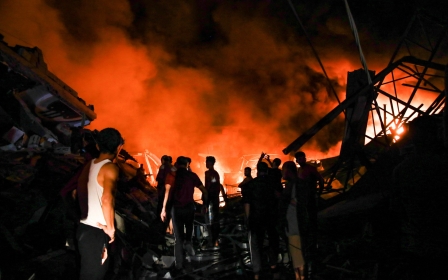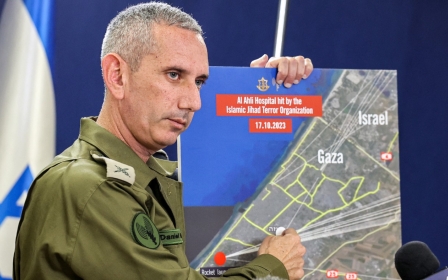Israel-Palestine War: The numbers and facts on Palestinian prisoners in Israeli detention
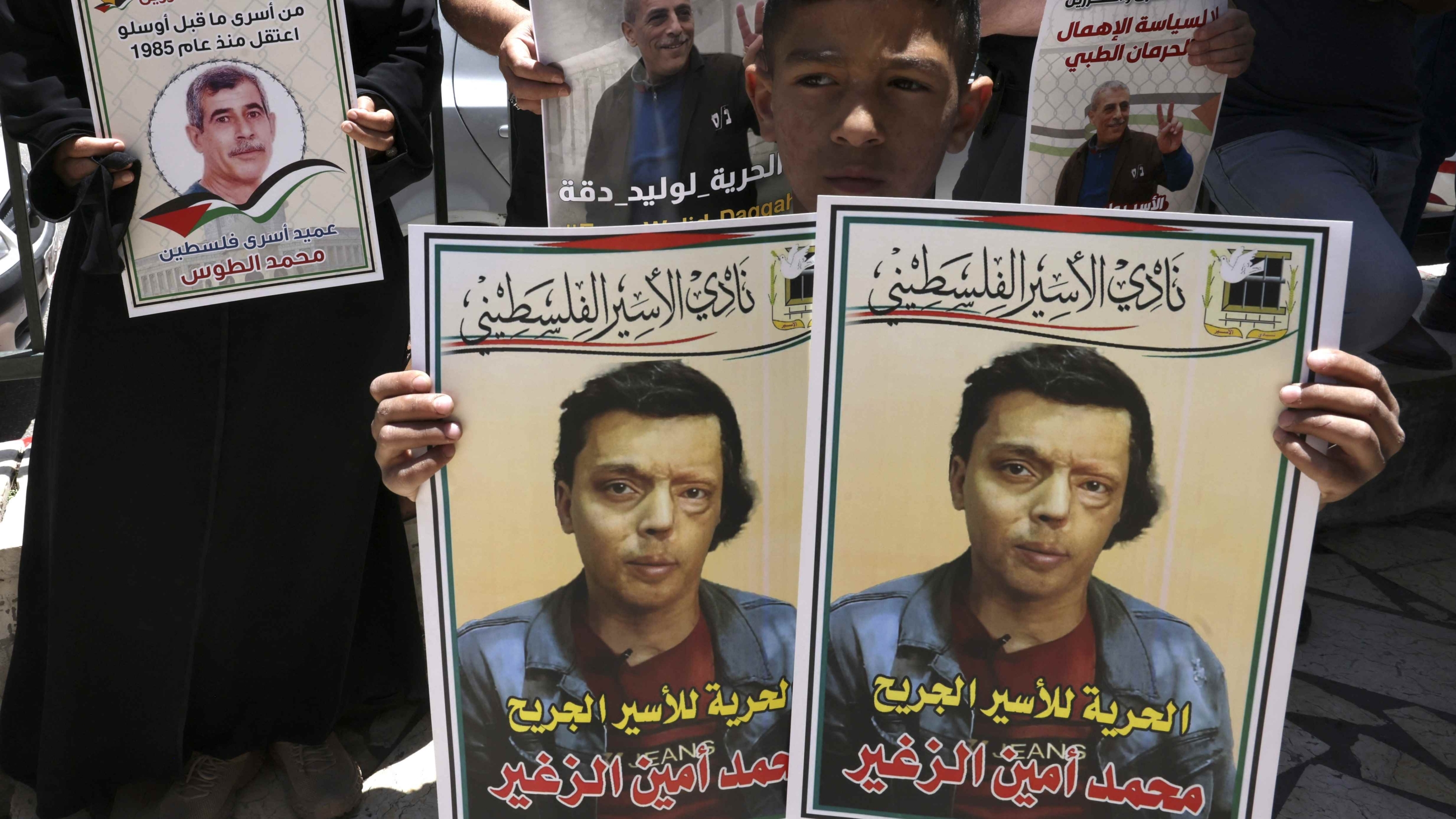
One of the key initial demands by Hamas for the release of Israeli captives held in Gaza was the release of thousands of Palestinians held in Israeli prisons.
Before the launch of a surprise assault by Palestinian fighters on southern Israel on 7 October, there were at least 5,300 Palestinians in Israeli jails.
Since the attack and the subsequent Israel-Palestine war, at least another 870 Palestinians have been arrested at the time of publication, according to Palestinian sources, who say most are activists from Hamas.
These prisoners are in 23 prisons and detention centres across the occupied Palestinian territories and within what is now Israel.
Amongst them are 40 female prisoners, who are held by Israel at the Damon prison, and a further 170 children, detained at prisons including Ofer, Damon, and Megiddo.
New MEE newsletter: Jerusalem Dispatch
Sign up to get the latest insights and analysis on Israel-Palestine, alongside Turkey Unpacked and other MEE newsletters
In some cases, prisoners have been held by Israel for decades. There are 22 Palestinian prisoners who were arrested before the signing of the Oslo Accords in 1993.
Nael Barghouti, who is 66 years old and from Ramallah, is the longest-serving Palestinian prisoner in an Israeli jail.
Accused of attacking the Israeli military in 1978, Barghouti spent 33 years in prison before being released in 2011 as part of a prisoner swap deal for the release of captured Israeli soldier Gilad Shalit.
He was re-arrested in 2014 and has remained in prison ever since.
Such long sentences are commonplace for Palestinian prisoners with 559 sentenced to at least one life sentence.
The longest sentence was handed to Hamas commander Abdullah Barghouti, also from Ramallah, who was arrested in 2003 and was given 67 life sentences.
Even after death, Israel can choose to hold on to the bodies of those who have died in their custody.
Follow Middle East Eye's live coverage for the latest on the Israel-Palestine war
According to the Palestinian rights group Addameer, 237 Palestinians have died in Israeli prisons since 1967.
In 11 cases, Israel has refused to hand over a prisoner’s body for burial.
Palestinian activists and families also say that the conditions of imprisonment lead to a decrease in life expectancy and that prisoners often die prematurely after their release from detention.
The UN’s Office for Human Rights says negligence in prison has led to 700 cases of illnesses, including 24 cases of cancer.
According to Israeli human rights group B’Tselem, there are also 1,131 Palestinians in administrative detention, including 18 children aged between 16 and 18.
According to Addameer: “Administrative detention is a procedure that allows the Israeli military to hold prisoners indefinitely on secret information without charging them or allowing them to stand trial.”
Such periods of detention last six months and can be renewed indefinitely, according to European Parliament policy briefings.
Conditions
According to the Adalah Center for Human Rights, Palestinian prisoners, whom Israel classifies as security personnel, live in tougher conditions than ordinary Israeli prisoners.
They are denied the right to speak with their families over the phone, their visits are limited to first-degree relatives and even these can be cancelled by authorities.
Israeli prison administrators subject many prisoners to solitary confinement without justification for periods that may last years.
Rights groups also say that prisoners are not provided adequate meals and instead receive canned food devoid of nutritional value.
After far-right politician Itamar Ben-Gvir assumed the position of Israeli Minister of National Security, he began issuing decisions to further deteriorate the conditions of prisoners, including depriving them of hot water and preventing bread from being brought to them.
He also demanded the death penalty be imposed on them.
Ben-Gvir also prevented the implementation of the early release law, and ordered the prison authorities to intensify raids on prisoners’ rooms and random checks.
Israel also issues orders preventing prisoners from meeting with lawyers for up to 60 days, especially during the interrogation period.
Prisoners also suffer from a lack of adequate winter clothing and blankets in the winter, and from a lack of air conditioning in the summer.
In response, Palestinian prisoners have protested, including with mass hunger strikes. Since 1967, those in Israeli jails have been on hunger strike on dozens of occasions, most notably in 1970, 1976, 1977, 1980, 1987, 1992, 2012, 2014 and 2017.
Those are excluding the hundreds of prisoners who have carried out individual hunger strikes, which have lasted for several months to protest administrative detention.
In May, Palestinian prisoner Khader Adnan died as a result of his hunger strike against conditions in prison.
Exchange deals
Exchange deals are considered one of the main ways of releasing Palestinian prisoners from Israeli jails.
However, since the Shalit deal, Israel and Palestinian groups have been unable to conclude a deal. But history shows a number of instances where the two sides have agreed on exchanges.
A few prominent examples are listed below:
In 1968, 12 Israeli passengers and crew members of a hijacked El Al flight were exchanged for 37 Palestinian prisoners.
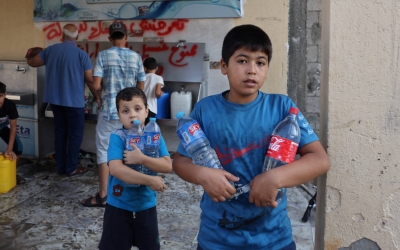
In 1971, the Fatah movement swapped captured Israeli soldier Shmuel Rosenwasser for one of its imprisoned members Mahmoud Bakr Hijazi.
In 1983, Israel released more than 4,500 prisoners from the Ansar prison camp in southern Lebanon plus scores of others in Israeli prisons in exchange for the release of six captured Israeli soldiers.
In 1985, under a deal known as the Jibril Agreement, Israel released more than 1,150 prisoners in exchange for three Israeli soldiers.
More recently in 2009, Israel released 20 Palestinian female prisoners from the prisons in the occupied West Bank and Gaza, in exchange for, a two-minute proof-of-life tape featuring Israeli soldier Gilad Shalit, who had been held captive by Hamas in Gaza since 2006.
An exchange deal was concluded in 2011 between Hamas and Israel. Shalit was released in exchange for 1,027 Palestinian prisoners, including 994 men and 33 women.
Middle East Eye delivers independent and unrivalled coverage and analysis of the Middle East, North Africa and beyond. To learn more about republishing this content and the associated fees, please fill out this form. More about MEE can be found here.


